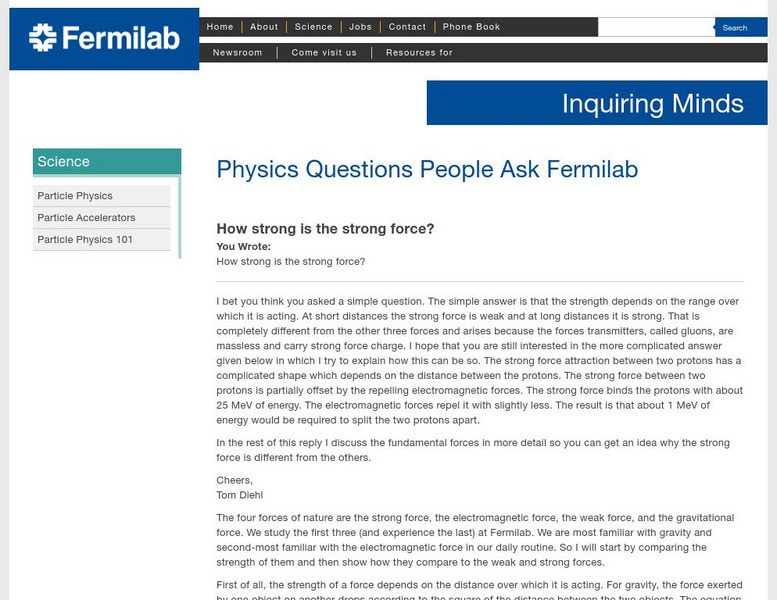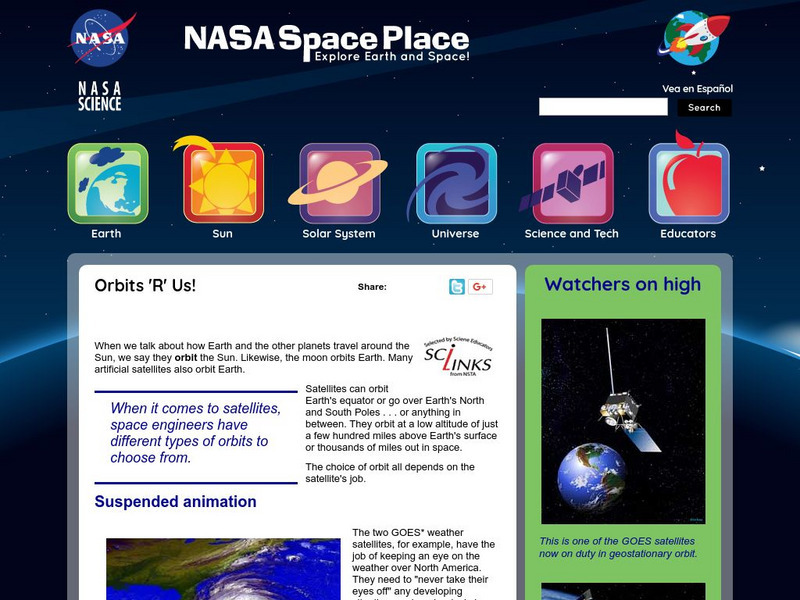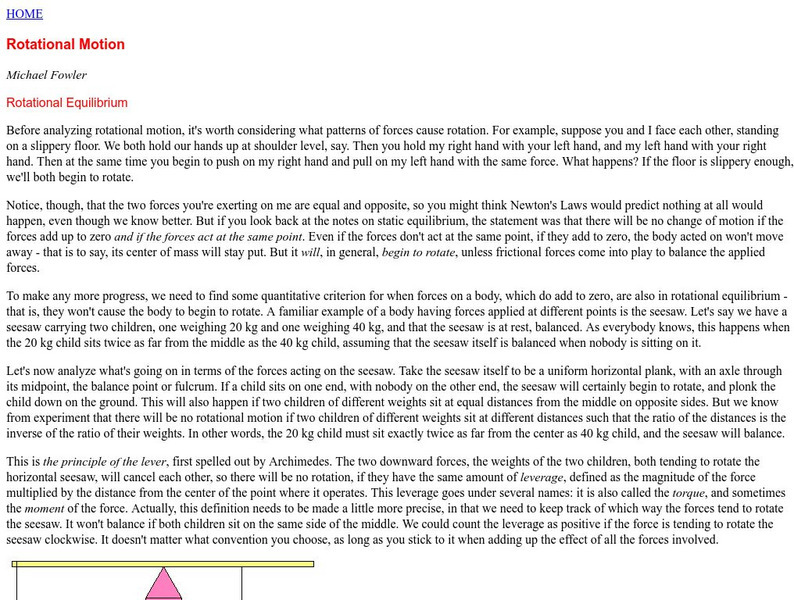American Museum of Natural History
What is Marine Biology?
A marine environment covers the majority of the earth but is arguably the least understood. Teach young scientists about the characteristics of oceans and ocean species using an interactive online lesson. The in-person or remote learning...
University of North Carolina
Brainstorming
Did you just hear thunder? Nope, you heard the sound of another kind of storm—a brainstorm! A handout teaches writers about different kinds of brainstorming and provides options for them to try when beginning to write their own papers....
The Wonder of Science
The Wonder of Science: K Ps2 1: Pushes, Pulls, and Motion
Teaching students about pushes, pulls, and motion? Use this site to plan lessons for students to conduct investigations to compare the effects on the motion of an object when pushes or pulls come from different directions or strengths.
The Wonder of Science
The Wonder of Science: K Ps2 2: Motion Design Solution
The NSTA vetted source includes resources to teach how to analyze data to determine if a design solution works as intended to change the speed or direction of an object with a push or a pull. Included are assessment ideas, videos,...
Ducksters
Ducksters: Physics for Kids: Motion Glossary and Terms
Kids learn about glossary and terms in the science of physics and motion. Definitions for words such as momentum, force, work, energy, gravity, scalar, vector, power, and more.
Physics Classroom
The Physics Classroom: Centripetal Force Requirement
Animation depicting the effect of a centripetal force on the motion of an object. Newton's laws are used to explain why circular motion requires an inward-directed force.
Other
Fermi Laboratory:how Strong Is the Strong Force?
Use this site to learn about the four forces of nature. Also learn what determines the strength of a force. This question and answer site is a link of the Fermi National Accelerator Laboratory.
Ducksters
Ducksters: Physics for Kids: Force
Kids learn about force in the science of physics and the laws of motion including units and measurement. How to calculate force from mass and acceleration.
University of Virginia
Uva Physics: Using Vectors to Describe Motion
Background information on vectors and their use in describing motion in two dimensions. A comparison of Aristotle's and Galileo's perspectives on force and motion is given.
Ducksters
Ducksters: Physics for Kids: Laws of Motion
Kids learn about the science behind the basic three Laws of Motion. Forces theory discovered by Isaac Newton.
PBS
Pbs Learning Media: Science Now! Agony of Defeat
A video clip asks students to explain how forces and motion affect the skier in the film. This is one in a series of creative writing prompts. [0:32]
Other
Personal: The Laws of Motion
This personal site explains the physics of angular momentum and their application to flight. Part of a much larger site on the procedures, principles, and perceptions of flight.
PBS
Pbs: Nova: Top Gun Over Moscow
An online exhibit investigating the sensations experienced by a cockpit pilot in a Russian aircraft. Focuses on G-forces and apparent weightlessness.
Other
Math Matters Every Day: Newton's Laws
Looks at how Newton's three laws of motion apply to an analysis of the forces being exerted when playing football.
Other
Glenn Turner: Gyroscope Math Page
The mathematics associated with gyroscopes can be investigated through this interactive page. Users enter critical parameters about gyroscopes and rotational motion descriptors are given.
Other
Bscs: Bscs Science Teaching Video Library
Elementary teachers have an urgent need for high-quality science classroom videos. To respond as rapidly as possible, BSCS Science Learning has made some of our best K-12 videos available for free streaming. In this collection, you'll...
Other
Institute of Physics: Practical Physics
Access hundreds of teacher-tested, practical physics lessons on this well-organized, illustrated site. Find just the right demonstration, attention-grabber, or lab for any physics teaching objective at your fingertips.
NOAA
Noaa: National Ocean Service: Education: Currents
Illustrated tutorial explains the numerous factors which shape ocean currents. Animations help students visualize how these aspects constantly affect the water movement in the ocean and how scientists use this information to study ocean...
University of St. Andrews (UK)
University of St. Andrews: Orbits and Gravitation
A page describing the physics, mathematics, and historical figures associated with planetary motion, satellite motion, and universal gravitation.
NASA
Nasa: The Space Place: Orbits 'R' Us
Learn about how Earth orbits the sun and how satellites orbit the Earth. Discover the different types of satellites such as GOES and POES and what they are used to monitor.
University of Virginia
University of Virginia: Rotational Motion
A page describing rotational equilibrium and non-equilibrium situations. Includes graphics, equations, and many examples.
NASA
Nasa: Beginner's Guide to Aerodynamics
Includes exhaustive information and a wealth of activities pertaining to aerodynamics and the physics of flight.
Ducksters
Ducksters: Physics for Kids: Pressure
Kids learn about pressure in the science of physics and the laws of motion including units and measurement in pascals. Calculate pressure using force divided by area.
University of Virginia
Uva: The Real World Air Resistance
A contrast of Galileo and Aristotle's view of inertia and motion. Describes air resistance force and how its reality seems to initially support Aristotle's view.
Other popular searches
- Motion and Forces
- Powerpoint Forces and Motion
- Science Forces and Motion
- Motions and Forces
- Forces and Motion Speed
- Forces and Motion Activities
- Motion Forces and Energy
- Motion Balanced Forces
- Exploring Forces and Motion
- Forces and Motion Graphs
- Forces and Motion Vocabulary
- Forces and Motion K 2




















